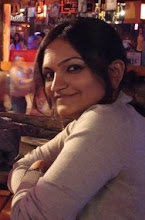Sometimes we study so much as students of science, and work so much on our own in the initial (study) stages of our career that we tend to forget about scientists being human, subjective too.
Research is 60% individual work, and 40% collective effort, if not downright half and half. It is naivety to assume otherwise. This morning, I was faced with a little situation that had me wishing that research was just about identifying a question, generating a possible answer, collecting resources and designing experiments to clarify the accuracy of the answer. Period.
I sometimes find it hard to explain to my parents that thesis-based graduate degrees are just like a regular job. Only harder, longer hours with menial pay, and more ambiguous. For instance, you get a whiff of the tussle between individual interests whether or not you're the sole investigator, because there are vested interests. In most schools, particularly ones with minor budgets, grants are poured into a particular research team with expectations. Suffice to say that professors in turn would expect work of a certain quality to come out of their research teams, so you're walking on eggshells until you're sure what they want.
If there was ever a time I understood why Waterloo showcased a joint Bachelors in Accounting and Biology, it is now. Have you ever seen a grant application?? They have courses to explain how to go about that work! I'm certain it tops the list of the most tedious work done by researchers. But accounting classes might be beneficial in more ways than that, I think. Getting the prices of the glassware and chemicals down to the T is just log-keeping. Some relatively subjective accounting requires gauging interpersonal interactions, expectations. Even a simple Masters thesis is a major collective effort. The professor and department invest their resources in you, and it's a tough call between the process that had proven results and the other- always the more cooler, riskier- one you've been dying to test for hope of a mild eureka moment. Plus there are the undergraduates and technicians you invest in yourself. Clarity and honesty will go a long way in supporting your niche in that web.
In my experience, professors in North America are fantastically accustomed to the whole research process, glitches et al. You're treated like the adult you are, no overt displays of reverence necessary. That attitude helps if you're foolhardy, or impatient, or otherwise, since the responsibility for failure-like success- rests on your shoulders. Plus, there are very few professors who'll shoot down everything you think of, or do. So don't worry about sounding like someone lacking knowledge, or worse, downright foolish. Through all the fresh- sometimes unpleasant- reality-checks I get a dose of, I still maintain that science is rooted in curiosity. So long as curious George isn't latching onto broken vines. Do your background research before any discussions. Do it regularly, do it well. At the outset, be clear about the domains of the project. Be practical in your definitions, and always leave room for more. Don't binge, don't spread yourself too thin. Better may be less, but more is certainly not better, and that is the distinction between work that gets published and work that doesn't.
This clarity is doubly crucial when defining the roles of advisor and student investigator, and the expectations both have of each other. There's bound to be compromise by both, but never let the equation tip over. For either side. We're twenty-plus year-olds by the time we get to this stage, so gauging unvoiced issues is a skill I'd assume we've acquired. If there's something substantial not out in the open, get it out asap, whether it's something you want, or the other person. If it's significant to one, it's significant to both. Everyone is making a commitment, so you're just as much responsible as you are rightful. But like every right, you've got to know when the rope's stretched too far, when you're maxed out in terms of compromise. And be conscious of how much you're pulling as well.
Lack of clarity can be an awful situation, especially since time is an investment on which you don't get returns. I've had to move bases myself after this morning, so no more molecular work. Tomorrow I start a new project with tadpoles and dragonflies. On the bright side, there's more pictures! And I'm going to try and lasso one of the flying critters like my dad often did, and report my results on this blog, hopefully shielded from the animal police.
P.S.: Just in case there is a PETA enthusiast around, I'm all for ethics on this issue. Honestly, I'm better with dogs than babies!

No comments:
Post a Comment